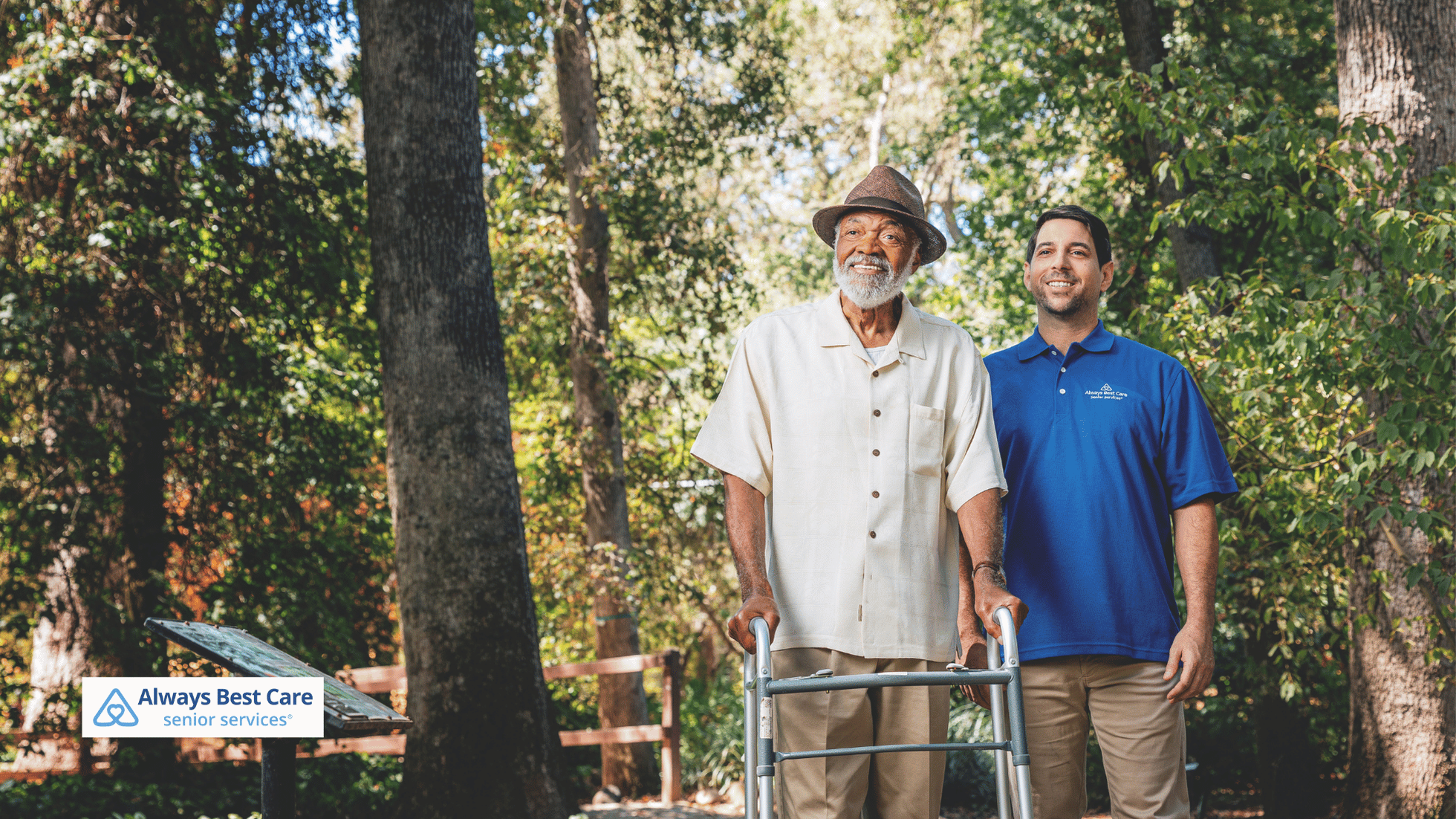Empowering Seniors: Managing Diabetes for a Better Quality of Life

As we age, managing health conditions like diabetes becomes even more important.
Keeping blood sugar under control for seniors can significantly improve their overall quality of life.
Thankfully, there are simple yet effective ways to manage diabetes, from staying active and eating well to keeping stress in check.
With the right approach, seniors can stay healthy and enjoy life despite their diagnosis.
Table of Contents
Understanding Diabetes in Seniors
Diabetes is a condition where the body has trouble managing blood sugar levels.
As we age, this becomes more of a challenge. Seniors are more likely to develop type 2 diabetes, which can lead to other complications if left unchecked.
The good news is that with a combination of healthy habits, regular check-ups, and a supportive care team, managing diabetes doesn’t have to be overwhelming.
Recognizing the Symptoms of Diabetes in Seniors
The signs of diabetes can sometimes sneak up on seniors.
They might notice feeling more tired than usual, experiencing blurry vision, or increased thirst.
Other common symptoms include frequent urination, unexpected weight changes, or slow wound healing.
If any of these sound familiar, checking in with a doctor is paramount. Early detection makes managing diabetes much easier and helps prevent complications.
The Role of Diet in Diabetes Management
Eating well is one of seniors’ most powerful ways to control their blood sugar.
You don’t need to follow an overly strict diet to make a difference, but smart food choices can go a long way. The goal is to keep meals balanced, focusing on whole grains, lean proteins, and fresh vegetables while limiting sugary and processed foods.
A steady, healthy diet helps regulate blood sugar and gives the body the nutrients it needs to thrive.
Nutritional Tips for Blood Sugar Control
Simple changes like adding more fiber, eating low-sugar fruits like berries, and swapping refined carbs for whole grains can help seniors stabilize their blood sugar.
Eating smaller, more frequent meals throughout the day rather than three large ones is also a good idea, as it helps maintain steady energy levels.
Staying Active: Exercise as a Tool for Diabetes Control
Regular physical activity is a powerful tool for seniors managing diabetes.
Exercise helps the body use insulin more effectively so blood sugar levels stay more balanced.
The great thing is that seniors don’t need to push themselves to the limit with intense workouts to see the benefits. Even gentle activities can improve blood sugar control and overall health.
Staying active can:
- Improve insulin sensitivity: This helps regulate blood sugar more effectively.
- Boost energy levels: Exercise reduces feelings of fatigue and enhances mood.
- Support heart health: Regular movement helps prevent heart disease, which is often a concern for those with diabetes.
- Strengthen muscles and bones: Staying active helps maintain muscle mass and bone density, reducing the risk of falls or injuries.
- Enhance mobility and flexibility: Physical activity helps keep joints flexible and reduces stiffness.
Simple Exercises for Seniors
- Walking: Walking for 20-30 minutes daily is a simple way to stay active. Walking is a great way to keep blood sugar levels steady, whether around the neighborhood, in a park, or even indoors at a shopping mall.
- Yoga: Yoga improves flexibility, balance, and strength while reducing stress. Seniors can practice yoga independently, using chairs or other supports as needed. It’s a gentle way to stay active and calm.
- Water Aerobics: Water exercises are fantastic for those with joint pain or limited mobility. The water’s buoyancy reduces the impact on joints while still providing resistance for strengthening muscles.
- Chair Exercises: Chair exercises can be a safe and effective way to move for those with limited mobility. These exercises focus on gentle stretches, leg lifts, and arm movements that can be done while seated.
- Tai Chi: This slow, flowing exercise improves balance, coordination, and mental focus. Tai chi is helpful for seniors who want to maintain stability while moving gently.
- Dancing: Whether it’s ballroom dancing or just grooving to music at home, dancing is a fun way to get your heart rate up and your body moving without feeling like a workout.
Medication and Blood Sugar Monitoring
For many seniors, medication and regular blood sugar monitoring are vital parts of managing diabetes.
Medications, such as insulin or oral drugs, help regulate blood sugar levels, while frequent monitoring clearly shows how well those levels are being controlled. Both are important for preventing dangerous blood sugar spikes or drops, which can lead to complications.
By maintaining a consistent routine for taking medication and checking blood sugar levels, seniors can:
- Avoid blood sugar spikes: Monitoring helps you catch high blood sugar levels early and adjust medications or meals accordingly.
- Prevent dangerous lows: Regular checks prevent blood sugar from dropping too low, which can be risky for seniors.
- Better understand how food and exercise affect blood sugar: Monitoring allows seniors to see how their bodies react to different meals or physical activities.
- Adjust medication when needed: Healthcare providers can fine-tune medication doses based on blood sugar levels to keep everything balanced.
- Track long-term progress: Recording blood sugar readings helps doctors monitor trends and adjust the overall diabetes care plan.
Tips for Effective Medication Management
Staying organized with medication and monitoring routines can make managing diabetes much easier. Here are a few simple tips:
- Set daily reminders: Whether through a phone alarm, a reminder app, or a simple calendar, setting reminders ensures that medications are taken on time.
- Use a pill organizer: A pill organizer with daily slots makes it easy to keep track of medications and helps prevent missed doses.
- Keep blood sugar supplies handy: Have your blood sugar monitor, test strips, and insulin (if needed) easily accessible in one location. This reduces the hassle of searching for supplies and encourages regular monitoring.
- Create a medication schedule: Write down your medications’ exact times and doses, and stick to that schedule. Consistency helps regulate blood sugar levels more effectively.
- Track blood sugar levels: Record your reading with your doctor during appointments. This clearly shows how well your current treatment plan is working.
- Review medications with your doctor: If you notice any side effects or are unsure how a medication affects you, talk to your healthcare provider. They can make adjustments as needed.
- Consider using technology: Devices like automatic blood sugar monitors or apps that track medication and glucose levels can simplify the process and provide helpful insights.
Preventing Diabetes-Related Complications
When diabetes isn’t properly managed, it can lead to complications that affect other areas of health. These complications can range from vision issues to slow wound healing and even foot problems for seniors.
Eye Health and Vision Loss Prevention
High blood sugar can damage the blood vessels in the eyes, leading to blurry vision, cataracts, or even diabetic retinopathy.
Seniors with diabetes should prioritize regular eye exams to catch any problems early. Managing blood sugar levels effectively is crucial to preserving vision and preventing long-term damage.
Wound Healing and Regular Foot Check-Ups
Diabetes can slow down the healing process, particularly regarding wounds, so foot care is very important.
Seniors with diabetes should inspect their feet daily for cuts, blisters, or sores, as these can get infected if not treated properly.
Regular foot check-ups with a healthcare provider are also essential to catch any issues early. Wearing comfortable shoes, keeping feet clean, and moisturizing can help prevent foot problems.
Managing Stress and Mental Health
Living with diabetes can be stressful, and high stress levels can make managing the condition even harder. That’s why focusing on mental well-being and physical health is important.
Activities like meditation, light exercise, or spending time with loved ones can help seniors manage stress and keep blood sugar levels in check.
Building a Support System
Managing diabetes doesn’t have to be done alone.
A strong support network can help with meal planning, medication reminders, and offering emotional support when things feel overwhelming. Seniors with a strong support system are likelier to stay on top of their diabetes management and feel more confident about their health.
Take Control of Diabetes with Compassionate In-Home Care from Always Best Care of Belmont!
At Always Best Care of Belmont, we understand the unique challenges that seniors with diabetes face, and we’re here to help.
Our compassionate caregivers provide personalized in-home care services that include assistance with medication management, blood sugar monitoring, meal preparation, and promoting an active lifestyle—all designed to support seniors in managing their diabetes and improving their overall quality of life.
Whether your loved one needs full-time care or occasional support, we are committed to delivering exceptional care with dignity and respect.
Contact Always Best Care of Belmont at (617) 489-9000 to learn more and schedule your free consultation.





